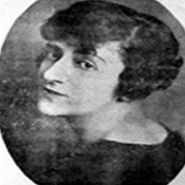Nezihe Muhiddin facts for kids
Quick facts for kids
Nezihe Muhiddin
|
|
|---|---|
 |
|
| Personal details | |
| Born | 1889 Constantinople, Ottoman Empire |
| Died | 10 February 1958 (aged 68–69) Istanbul, Turkey |
| Nationality | Turkish |
| Occupation | Activist, journalist, writer |
Nezihe Muhiddin Tepedelengil (1889 – 10 February 1958) was a Turkish activist, journalist, writer, and political leader. She was a pioneer for women's rights in Turkey. She fought to make sure women's political rights were recognized after the new Turkish Republic was formed.
Nezihe Muhiddin was one of the most important leaders of the early women's rights movement in Turkey. In 1923, even before the main political party was set up, she formed the Women's People's Party (KHF). This made it the first political party ever founded in Turkey. She also led the Women's Union from 1924 to 1927 and helped start a magazine called Turk Kadin Yolu.
She was a very productive writer, creating 20 novels, 300 stories, plays, screenplays, and operettas.
Contents
Her Life
Early Years and Learning
Nezihe Muhiddin was born in Kandilli, Istanbul, in 1889. Her father was a prosecutor and judge. She learned a lot at home from private teachers. She did not go to a university. She studied languages like Persian, Arabic, German, and French.
From a young age, she cared deeply about social issues and the role of women in society. Discussions between her mother and her cousin, Nakiye Hanım, about literature and social problems helped shape Nezihe's ideas. She said that Nakiye Hanım taught her the most. Nezihe saw Nakiye Hanım as a great example of a modern Turkish woman.
Nezihe Muhiddin continued to use her father’s last name, Muhiddin, in her books and writings. She did not use her second husband's last name.
Fighting for Women's Rights
Nezihe Muhiddin founded the first political party in the Republic of Turkey. It was called Kadınlar Halk Fırkası, which means "People's Party for Women" or Women's People Party. She started it in July 1923. This party was created to fight for women's political and social rights. However, because of the political situation at the time, the new Turkish government did not officially recognize it.
After this, Muhiddin helped create the Türk Kadınlar Birliği (Turkish Women's Union) with Latife Bekir. This union kept pushing for women to have equal political rights. In 1927, the Union tried to support a male politician who would speak up for women's rights in parliament, but he did not win.
Nezihe Muhiddin spent her life working to make life better for Turkish women.
Her Books and Writings
Nezihe Muhiddin wrote many novels that looked at women's challenges and criticized how men acted in marriages. Her first novel, "Şebâb-ı Tebah" (meaning "Disappearing Youth"), was published in 1911.
She started her career at age twenty and took on many roles. She wrote articles for magazines and newspapers. One of her most important works was the Kadın Yolu Dergisi magazine, which she published between 1925 and 1926. Throughout her life, she wrote 20 novels, 300 stories, plays, operettas, and screenplays. She also translated books by famous writers like Goethe and Edgar Allan Poe.
In 1913, she helped set up a charity called the "Turkish Ladies Protection Association" and became its secretary. She also helped found the Women's Branch of the “Donanma Cemiyeti,” which supported the Ottoman navy. Even while doing charity work, her main goal was to unite women and help them get involved in politics.
In her book called Turkish Women, Muhiddin explained that she learned about what it means to be a woman from the women around her. Their ideas helped shape her actions.
She also worked as a director at a school called İttihad ve Terakki Kız Sanayi Mehteb. She held important positions in many women's groups and communities. In 1927, the Turkish Women's Union chose to support a male candidate for parliament, but he was not successful.
Nezihe Muhiddin faced many challenges and was often ignored. Because of these difficulties, she stopped being active in politics after the 1930s. Instead, she focused on her writing. She wrote many stories and novels.
She passed away in Istanbul on February 10, 1958.
See also
 In Spanish: Nezihe Muhiddin para niños
In Spanish: Nezihe Muhiddin para niños

